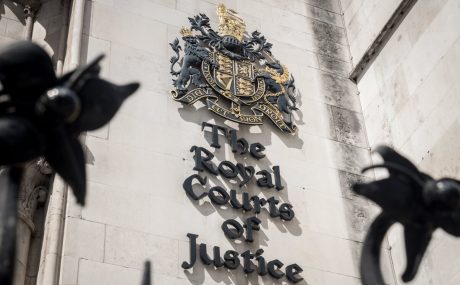In a judgment handed down in July 2017 the Court of Appeal has clarified the test when making applications under Section 25 of the Civil Jurisdiction and Judgments Act 1982 which allows parties to obtain pre-judgment freezing orders in aid of foreign proceedings.
Stewarts acts for entities created for the purposes of investing the sovereign wealth of Ras Al Khaimah, the northern-most of the seven Emirates of the UAE. In 2006 Ras Al Khaimah Investment Authority (“RAKIA”) took up opportunities to invest in Georgia’s programme of privatisation. RAKIA put its then CEO, Dr Khater Massaad, in charge of these plans who in turn appointed Mr Gela Mikadze to develop these opportunities.
RAKIA believes that Massaad and Mikadze grossly abused the trust that had been placed in them and acted in serious breach of their fiduciary duties owed to the RAKIA entities over which they exercised control, embezzling huge sums for their personal benefit. Civil and criminal claims have been brought against them and their accomplices in Georgia, the UAE and England in efforts to recover in excess of $42m claimed to have been misappropriated in Georgia alone.
In July 2017 Stewarts achieved a significant victory for its clients in the English Court of Appeal which granted freezing orders in favour of RAKIA (and other RAK government entities) against English limited liability partnerships beneficially owned by Mikadze. The Court of Appeal judgment overturns the decision of Mrs Justice Rose on an application made by RAKIA in 2015 in which freezing orders were sought in aid of the claims against Mikadze’s companies in Georgia and against Mikadze personally in the UAE. Mrs Justice Rose found that RAKIA had established a good arguable case in relation to its substantive claims of fraudulent misappropriation of assets by Mikadze, an arguable case that all of the English LLPs were Mikadze’s creatures and that there was a real risk that the LLPs/Mikadze would dissipate their assets. However, on the test she applied, she found that RAKIA had not established that Mikadze’s LLPs had assets on which a freezing order would “bite”.
The test relied on by Mrs Justice Rose was that the respondents must be “likely to have” assets that could be effectively frozen. The Court of Appeal put it no higher than that there needs to be “grounds for believing” that the respondents had assets. Applying the correct test, the Court of Appeal held that on the facts there are grounds for believing that three of Mikadze’s LLPs have (or recently had) assets and no convincing evidence had been presented that any freezing order against those entities would be ineffective.
A freezing order was therefore issued against these entities in respect of their assets anywhere in the world, save for in the Republic of Georgia (where freezing orders were already in place). Further, each of the three entities was ordered to swear and serve an affidavit setting out all of their assets worldwide and provide information in relation to the proceeds of the sales of the issued share capital of their respective Georgian subsidiaries. The court found that there was no satisfactory evidence of the whereabouts of these monies.
Not only has this decision clarified an important point of law in relation to the granting of worldwide freezing orders in aid of foreign proceedings but it provides judicial support to RAKIA’s quest and determination to find information regarding the misappropriation of its assets by wrongdoers (in this case, Massaad, Mikadze and their associates).
You can find further information regarding our expertise, experience and team on our Commercial Litigation pages.
If you require assistance from our team, please contact us or alternatively request a call back from one of our lawyers by submitting this form.
Media contact: Lydia Buckingham, Senior Marketing Executive, +44 (0) 20 7822 8134, lbuckingham@stewartslaw.com



